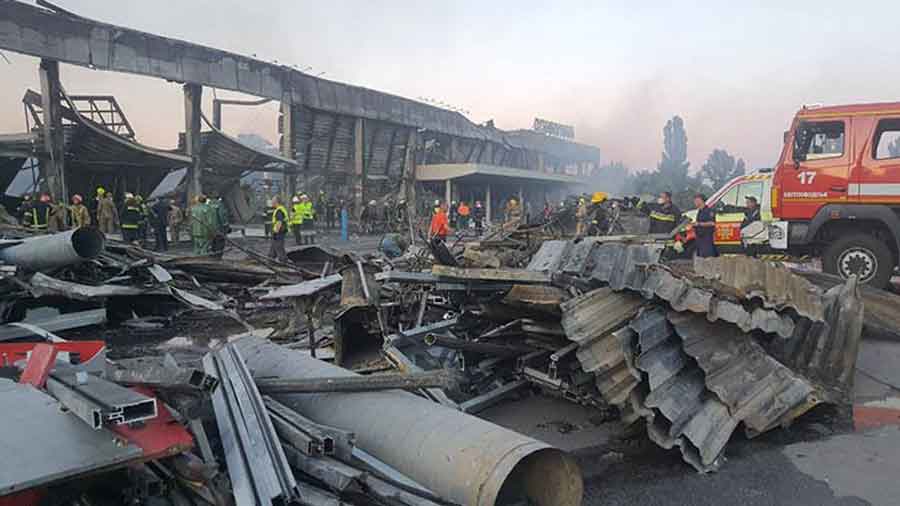Russian forces killed at least 13 civilians and wounded 11 others in an overnight missile attack in southern Ukraine, a senior Ukrainian military official said on Wednesday, in an escalation of fighting around a key nuclear power plant held by Moscow.
The Russians used Grad missiles in the attack on the Nikopol district, across the Dnipro river from the Zaporizhzhia Nuclear Power Plant, said the head of the Dnipropetrovsk military administration, Valentyn Reznichenko.
He said that Russians had fired 80 rockets on residential neighbourhoods,causing damage to apartment blocks, administrative buildings and infrastructure,and leaving 1,000 people without gas.Russian forces launched a “deliberate and insidious strike when people were sleeping in their homes,” Reznichenko wrote on the Telegram social messaging app.
He said that 10 residents were hospitalized, seven of whom were in serious condition.In recent weeks, Russia has reinforced its positions in Kherson province, which borders Dnipropetrovsk and targeted a series of missile attacks there and on nearby provinces. According to Ukrainian officials, those attacks have included shellfire directed at Nikopol from the Zaporizhzhia plant, which Russian forces seized in March.It was not clear whether the overnight attack had come from the grounds of the nuclear plant. On Saturday, rocket fire struck a spent-fuel storage facility at the plant itself.
New York Times News Service










